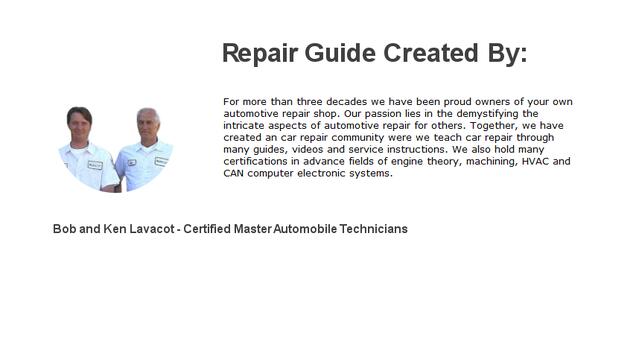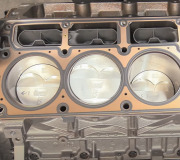Introduction
Low compression in engine cylinders can significantly impact performance and lead to serious mechanical issues. Understanding the symptoms of low compression helps in early diagnosis, potentially saving costly repairs. Here are the most popular symptoms to look for when your engine has low compression in one or more cylinders.
Individual Cylinders
1. Check Engine Light: The car's computer system can detect if a cylinder is misfiring which can be caused by low compression, for example: If you get a P0301 code it means cylinder #1 is having a misfire issue. The normal course of action is to replace the spark plug, fuel injector and ignition coil but, if these repairs do no fix the problem the next step is to check for low compression.
2. Engine Misfire: Compression is essential for the combustion process and will make an engine cylinder misfire is the compression is too low, (below 90 psi). Misfires will trigger the check engine light and may feel like a jerking or stumbling sensation during driving.
3. Rough Idle: Compression must be uniform inside all of the cylinders for the engine to run smoothly. If this balance is disrupted with a no compression condition it will cause a rough idle. If you notice shaking or uneven engine noise when the vehicle is idling, this could be a sign of low compression.
All Cylinders
1. Smelly Exhaust: When an engine wears out, it will have less compression which will cause the fuel air mixture to not combust fully which will have a pungent exhaust smell, you might have noticed this when you get behind an old car while running.
2. Low Engine Power: As the compression fads while the engine wears, the power output is negativity affected. If you experience sluggish acceleration, especially when climbing hills or accelerating quickly, it may indicate that one or more cylinders have low compression.
3. Poor Fuel Economy: Fuel efficiency depends on a normal rate of compression and as compression is lost, so does the ability to burn fuel correctly resulting in poor mileage. If your vehicle consumes fuel faster than usual, low compression could be affecting combustion efficiency.
4. Hard or No Starting: Once the minimum compression requirement is achieved, (worn out cylinders) the engine will take longer to start or it can possibly not start at all due to lack of compression which stops the combustion process.
Is it Safe to Drive?
If you have low or no compression in one cylinder the result will be the engine running rough and perhaps stalling when the engine is at idle. This can be a hazard when driving in heavy traffic and the engine could be suffering further damage as a result
Conclusion
Low compression in an automotive engine can lead to a range of symptoms from rough idling to significant power loss. By identifying these symptoms early and following the correct diagnostic steps, you can prevent further engine damage and improve performance.
Credits
This guide knowledge base was created by the 2CarPros Team, and by Ken Lavacot: Automobile repair shop owner and certified master automobile technician of over 30 years. If you have question or need help please ask one of our experts we are happy to help. Please visit our 2CarPros YouTube Channel for additional car repairs.




